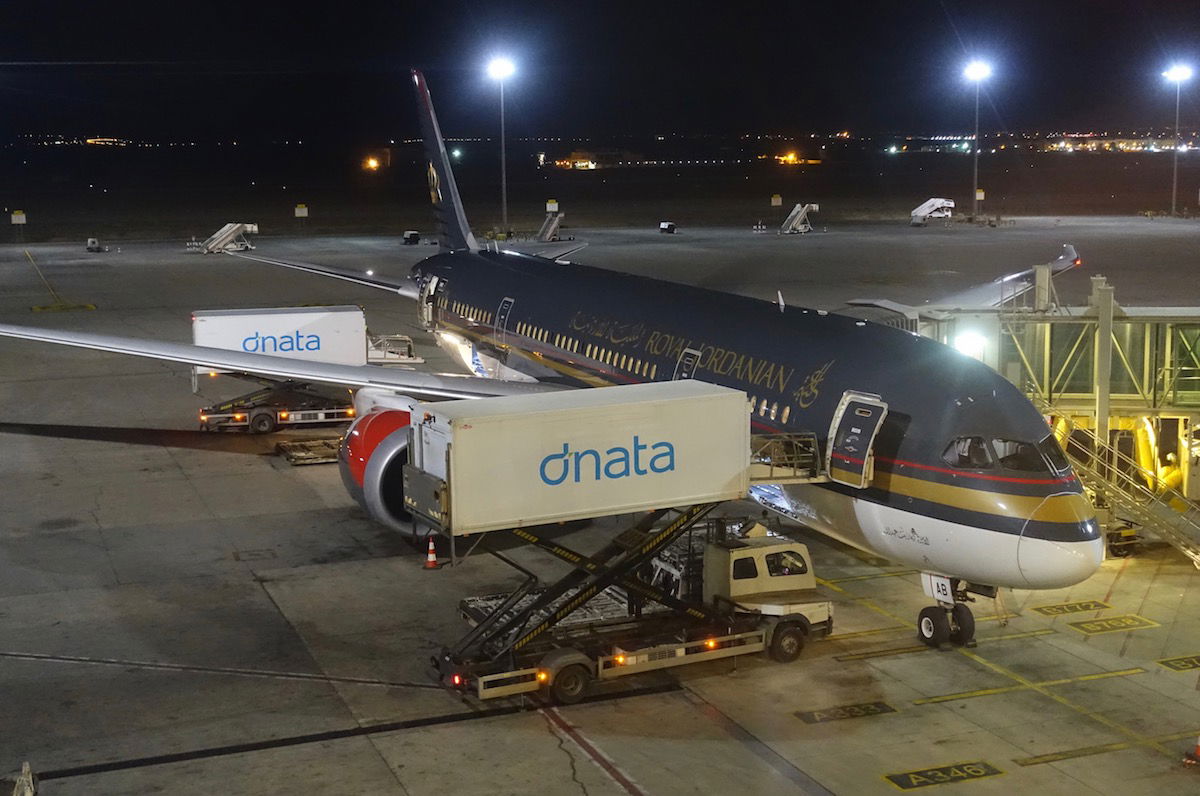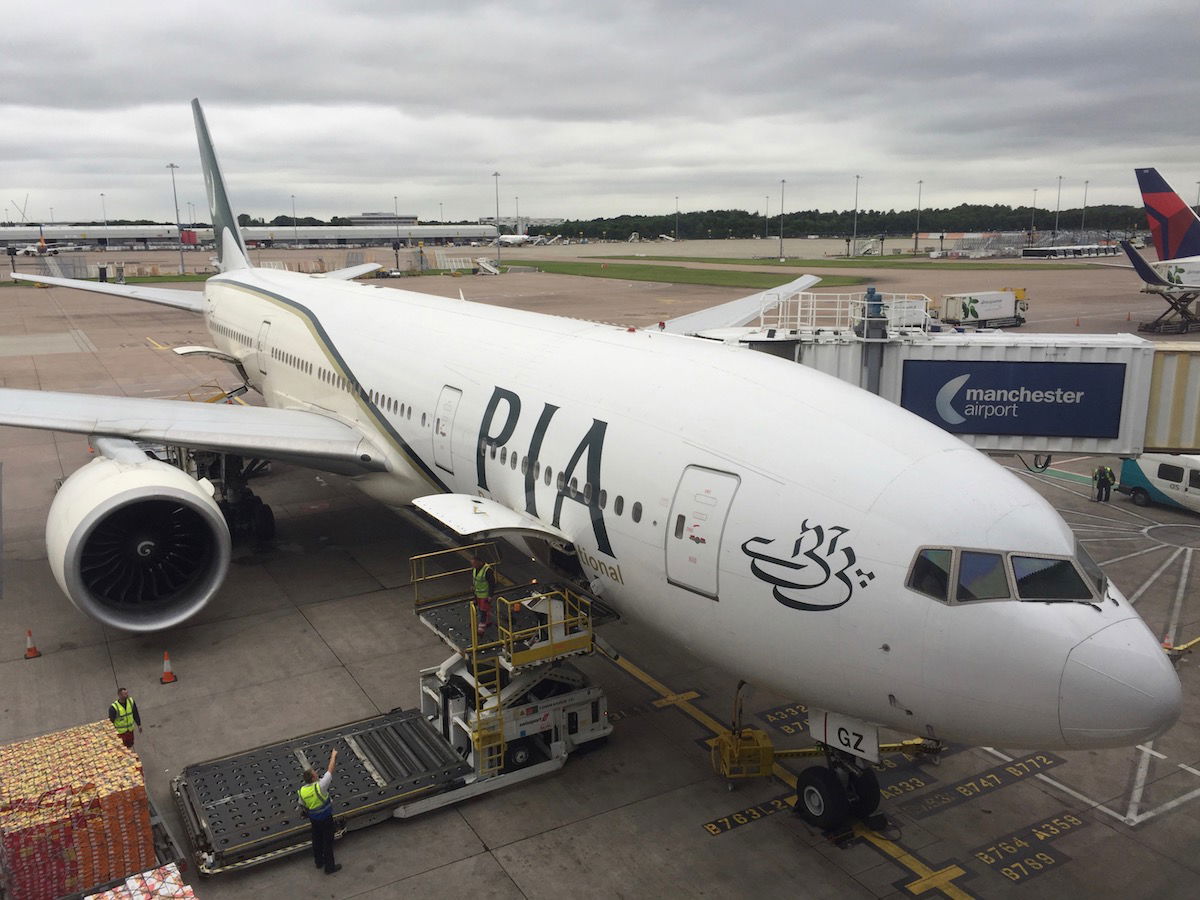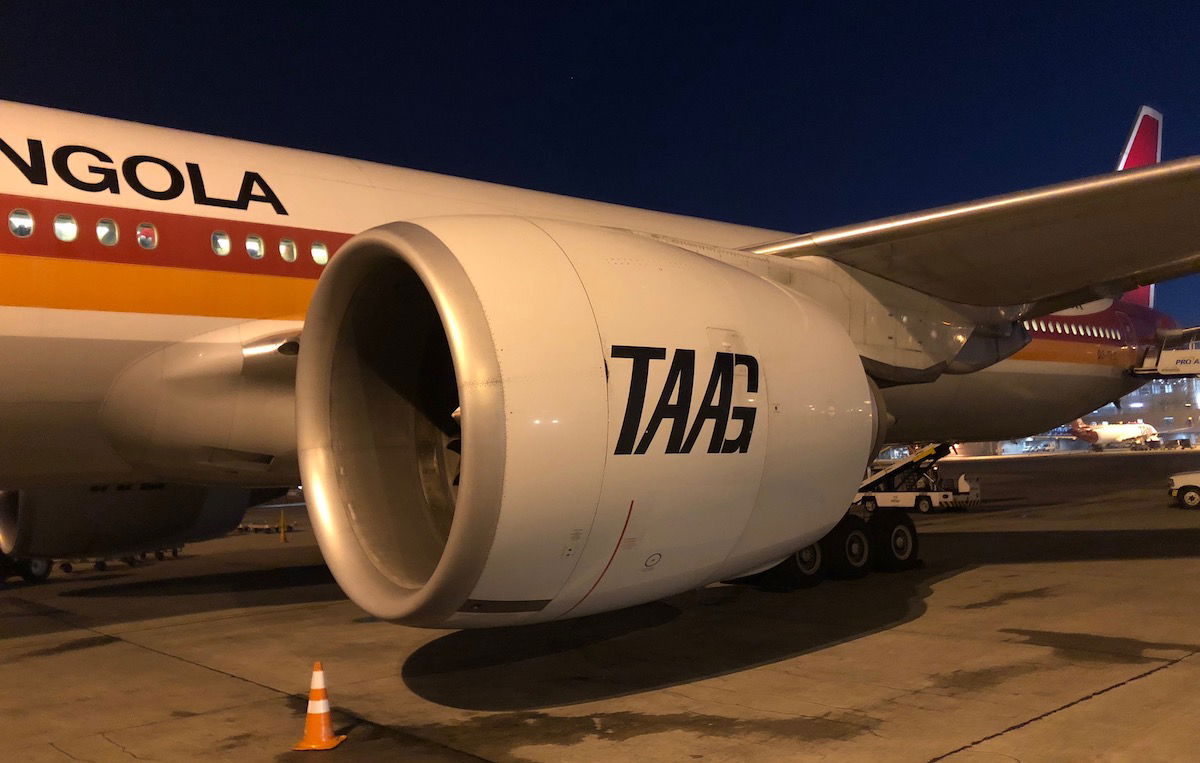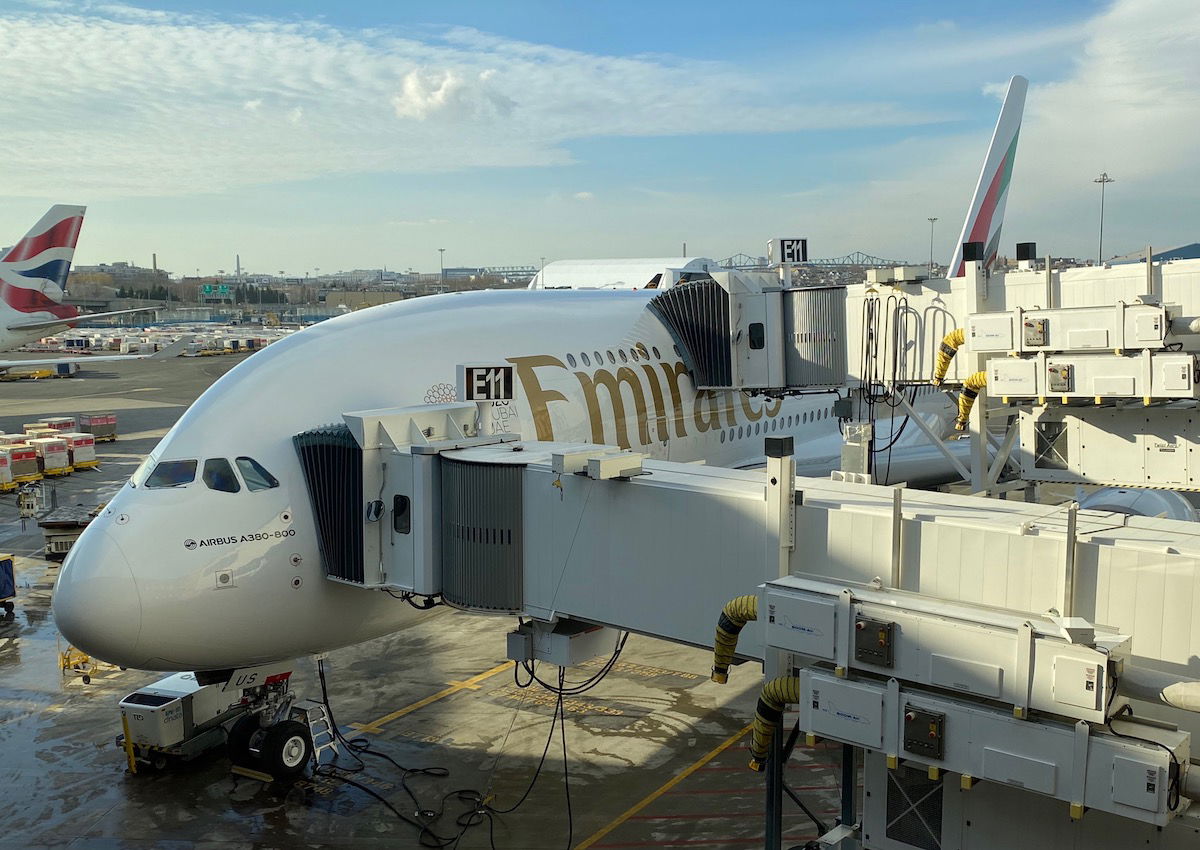As an aviation geek, I thought it would be interesting to discuss perception of airline safety. I’ll share how I feel, and then I’d love to hear what OMAAT readers think. Why do I bring this up?
- Every so often we see airline safety rankings published, which often have questionable methodologies
- Readers sometimes ask if there are any airlines I’m afraid to fly, or if I consider safety ratings when booking airlines, as I’ve flown some unique airlines over the years
- I have a non-avgeek acquaintance who messages me every time she’s about to book a flight and simply asks if the airline she’s about to book is safe, and I’m very tempted to send her this post 😉
I’ll share my thoughts, noting that my perspective on this has evolved over the years.
In this post:
I used to be terrified of flying
Before I get too deep into this, let me note that while I’ve been in love with airplanes since a young age, there was a period where I was terrified of flying. Every time we took off my palms would get sweaty and I’d take deep breaths. I’d think about all of the things that could possibly go wrong.
What if there’s an explosive in the cargo hold? What if one of the pilots is suicidal? What if some maintenance wasn’t done correctly, and that last screw holding a piece of the plane together finally comes loose? It’s easy to think about these things given the lack of control we have when flying.
In my case, my fear of flying started after an awful Royal Jordanian flight in 2013 where I thought I was going to die. I’ve flown millions and millions of miles, and to this day that’s the only flight where I actually thought we were in danger (I’ll never know if we really were). It took me over six months before I was even remotely over my fear of flying.
I mention this because I don’t want to dismiss the fear of flying that some people have. I’ve been there, so I can relate to it, even if it is an irrational fear.

I think about all the things that could go wrong
Further to the above point, I’m not over my fear of flying because I’ve taken an “ignorance is bliss” approach, and just don’t think about things. Quite to the contrary, as an avgeek I notice just about everything when flying, good and bad.
I’ll take it a step further — whenever I fly a new airline or to a new airport, I look up the “accidents & incidents” page for the airport or airline, because I find it interesting.
On the surface I also have concerns about the practices at some airlines based on firsthand reports I’ve heard from pilots and other employees there, as well as the safety records that airlines have. I don’t want to name and shame here, but just to give a few examples:
- I have concerns about the maintenance practices at some airlines
- I have concerns about pilot training, pilot experience, and pilot fatigue, at some airlines
- I have concerns about the corporate cultures at some airlines, where pilots fear punishment if they report safety issues
- Across the board I have concerns about pilot mental health, especially at airlines that don’t have a second person go into the cockpit when one pilot leaves
- I have concerns about “juniority” and a lack of experience among pilots during periods where there are pilot shortages
- There are some airlines that have historically had very bad safety records, but they’ve improved considerably in recent years
I think most people would agree that these are all pretty legitimate, mainstream concerns. Never mind the reports in some countries of pilots flying with fake licenses, or that at some airlines hiring and promotions are based at least partly on who you know.
So while I think some airlines don’t use “best practices,” the industry overall is incredible when it comes to safety. The statistics show that you’re just about as safe in the air as on the ground, even if I’m (frankly) shocked that more things don’t happen. I continue to believe that flying is an absolute miracle.
Even when we do see the occasional tragedy (it hasn’t been a great year for aviation safety), flying is still incredibly safe, and exponentially safer than most other forms of transportation.

Why I’m not worried about airline safety
Having said all of the above, I’d fly just about any airline in the world without hesitation. Why don’t I care about airlines’ safety records? Because to me it seems silly to try and make judgment calls between airlines. When you look at the statistics, even the less safe airlines in the world are safer than so many other activities we engage in on a day-to-day basis.
When I get in an Uber or Lyft, I don’t do in-depth research as to the safety ratings or the car types that various drivers are in, even though that would arguably be more rational.
When I fly I simply hope for the best, and put my life in the hands of the pilots, mechanics, and whatever higher power, because anything else would just be silly, in my opinion. If I do die on a plane, then I just had really bad luck, and so be it — I died doing what I love (not to be grim here, but it is how I feel).
But if I actually wanted to overanalyze the safety record of every airline, I’d be left with very few airlines to fly.
That’s not to say that I won’t keep looking at safety records as I choose airlines (simply because it interests me), but they won’t change what I book. Though I will say that when I flew TAAG Angola several years back, I couldn’t help but shriek a bit at the fact that the airline had to “write off” a third of its Boeing 737-200s. Ouch.
At least that’s how I’m feeling as of now. Who knows, maybe if I have another Royal Jordanian-esque experience my opinion will change again.

Why airline safety rankings are useless
There are plenty of organizations out there that put out annual rankings about the world’s safest airlines, and I find the lists to be kind of puzzling. For example, JACDEC (the Jet Airline Crash Data Evaluation Center) publishes rankings of the world’s safest airlines, and here are the top 10:
- Emirates
- KLM
- Singapore Airlines
- EasyJet
- Southwest Airlines
- Air Canada
- Ryanair
- Qatar Airways
- Wizz Air
- Sichuan Airlines
Personally I find the whole concept of these kinds of lists to be strange. How do you really rank safety among airlines that haven’t had a fatal accident in well over a decade? And I don’t want to say too much, but claiming that Emirates is the world’s safest airline is a real head-scratcher…
My point is simply to say that I wouldn’t put too much weight in these rankings, or make any decisions based on this. In other words, your takeaway shouldn’t be “well I guess I should fly JetBlue over American, because it’s a much safer airline.”
Keep in mind that the Concorde was considered to be one of the safest planes in the world… until it wasn’t. It kind of gets at how in an industry that has a very high commitment to safety, trying to differentiate between airlines almost feels like a marketing exercise more than anything else.

Bottom line
Aviation is incredibly safe, and that’s a testament to the industry overall. Understandably many people are still scared of flying, because being hurled through the sky in a metal tube at 500 miles per hour without any control is kind of a miracle, if you ask me.
While I constantly consider risks when flying, that’s largely just because I’m interested in aviation. At the end of the day, I’ll gladly fly with any airline, though. Even “less safe” airlines are significantly safer than most other forms of transportation.
And even for those who are more cautious shouldn’t be concerned when flying a vast majority of airlines. Whether it’s American, or Qantas, or Lufthansa, or Cathay Pacific, these airlines all have top notch safety records.
I’m curious how OMAAT readers feel about airline safety — is it something you think about, and does it factor into the airlines you choose to fly?





Funny thing is planes were actually more dangerous than cars for a long time if rather than taking into account the distance you had to travel to have an accident you took in account the amount of times you had a climb onboard of either to end up a in a crash.
Anyway this summer one of my sons was terrified of flying because of the AI crash (further amplified by my other son's...
Funny thing is planes were actually more dangerous than cars for a long time if rather than taking into account the distance you had to travel to have an accident you took in account the amount of times you had a climb onboard of either to end up a in a crash.
Anyway this summer one of my sons was terrified of flying because of the AI crash (further amplified by my other son's pretense we'll crash any time as soon as we boarded). Long story short during the flight the FA escorted him to the cockpit where he spent 30 minutes (in flight !) talking about his fears to the pilot who debunked each of them. Adorable.
I avoid EgyptAir because of their horrific track record
You obviously never fly to Africa. Plenty of moneyed people that spend an entire day flying 6 hours to London and another 6 to their destination when there's a direct flight between the two countries that's 1 hour long (hint: the safety of the airline is the issue here).
Well, I just go with my personal safety rating. So, I am on a plane for a 5 hour flight BKK to DEL The ancient 747 is filthy. The plane shakes so bad at takeoff, that all the overhead bins spring open, with luggage all over the place.Then the engine right next to me is glowing red on the inside until we reach cruising altitude. The FA treats me like I am hallucinating when I...
Well, I just go with my personal safety rating. So, I am on a plane for a 5 hour flight BKK to DEL The ancient 747 is filthy. The plane shakes so bad at takeoff, that all the overhead bins spring open, with luggage all over the place.Then the engine right next to me is glowing red on the inside until we reach cruising altitude. The FA treats me like I am hallucinating when I point it out to him. Upon arrival in DEL, some guy comes along with that 10' ladder on tiny metal wheels, and drips a few drops of oil into that engine. After that my safety rating is around negative 99, and that's why I have not set foot on one of this airlines' planes, since 1991.
Regional airlines have worse safety records due to inexperienced pilots. I also stay away from ULCC, specially in Asia.
So Lion Air, AirAsia, Citilink then? I would say Japan and Hong Kong would be okay. Philippines's Cebu would be okay as well. When you go further down it becomes questionable.
Now do safest airports……
Commercial airline crashes are rare enough to be random events. No current commercial airline is anywhere near as dangerous as driving, by orders of magnitude. Most recent years there are none, compared to 30,000 to 40,000 per year for driving.
In what "recent year" have there been "none"--?
I'm in a similar boat. I don't really worry about airline safety records in general, because in the modern day the commercial aviation industry is so safe that any crash is essentially an outlier. There's some airlines that would give me pause, like Air Koryo, PIA, and national airlines from some of the poorer African countries, but for the most part I'm not worried about the safety record of any internationally-flying airline. Domestic could be another story.
Interesting article - with some curious, 'for pay' JADEC ratings. Perhaps, it might be useful to compare and contrast with a recognized, free site that updates on an immediate basis, rather than on a purely annual basis ?
See www.airlineratings.com
This company began rating airlines in 2012 and factors in IOSA, FAA and a number of other ratings - and categorizes via airline groupings such as Full Service, LCC groupings etc. Some 368+ carriers are...
Interesting article - with some curious, 'for pay' JADEC ratings. Perhaps, it might be useful to compare and contrast with a recognized, free site that updates on an immediate basis, rather than on a purely annual basis ?
See www.airlineratings.com
This company began rating airlines in 2012 and factors in IOSA, FAA and a number of other ratings - and categorizes via airline groupings such as Full Service, LCC groupings etc. Some 368+ carriers are covered and each airline is covered in a consistent and exhaustive manner. See the 'About' section to determine how ratings are calculated.
'
Their current 2025 'Top 10' (for JADEC comparison purposes only) lists:
1. Air New Zealand
2. Qantas
3. Cathay Pacific; Qatar Airways; Emirates
4. Virgin Australia
5. Etihad Airways
6. ANA
7. EVA Air
8. Korean Air
9. Alaska Airlines
10. Turkish Airlines (THY)
Given that QF (Qantas) is universally recognized as one of the *safest* airlines in the world, it is curious that it doesn't even appear in JADEC's 'Top 10' listing - especially since QF has not had a fatal accident in the jet era (think 1959 onwards).
I agree wholeheartedly that assessment and rating is an inordinately complex task - but I am somewhat bewildered by the JADEC list, which seems somewhat 'out of whack' at least for the oldest, English-speaking airline in the world.
Why is Korean on there?! And why isn't Finnair, British, Aerolineas Argentinas on there who are known to have stellar safety records?!
Hi Mike,
By comparison, each of the carriers you have nominated *are* assessed and rated on the AirlineRatings website.
Korean has had a clean safety record in recent years thanks to a total revamp of their operations following their last big accident in 1999. Prior to then, their safety record was abysmal. They have had some incidents since the revamp, but nothing more than one would expect of any major airline.
So the hull loss a few years ago is something we can expect from the likes of QF, NZ, etc.?
If you are referring to the QF B747 BKK "golf course incursion" in the early 1990's, then this was NOT a 'hull loss'.
The frame was repaired - at significant cost to QF - and continued to fly safely (passing all maintenance and safety checks) for many years after.
I was referring to Korean's hull loss in Cebu a few years ago; "They have had some incidents since the revamp, but nothing more than one would expect of any major airline."
While mostly true (and certainly for pretty much every major airline), this article isn't complete without noting the outliers who really aren't as safe as they should be. You photo of a PIA airliner is a good hint but there are others out there. Mostly airlines that you won't be taking from Phoenix to Cleveland nor London to Istanbul, but they do exist in some countries. To this day, I'm a bit wary of any...
While mostly true (and certainly for pretty much every major airline), this article isn't complete without noting the outliers who really aren't as safe as they should be. You photo of a PIA airliner is a good hint but there are others out there. Mostly airlines that you won't be taking from Phoenix to Cleveland nor London to Istanbul, but they do exist in some countries. To this day, I'm a bit wary of any Indonesian airline. Malaysia Airlines, OTOH, is probably fine after a very rough patch. To this day, the ineptitude of the AF 443 flight crew would give me a little pause before booking them, though I still would because the odds of an issue remain tiny.
It's an odd thing, but the more you understand about aviation the less you fear the things that infrequent fliers are nervous about. And the more concerned you are about the other aspects of aviation that they have no clue about.
Ben. Let’s get a review of Somali Airlines when they hopefully go into service next month after a 34 year hiatus!!
Ben states: “Why airline safety rankings are useless”.
His view is: “My point is simply to say that I wouldn’t put too much weight in these rankings, or make any decisions based on this”.
As an ex-military aviator, etc, my personal view is; that if an airline safety ranking assures even one person who would otherwise be either reluctant to fly, or, have a fear of flying with a particular airline, that flying with...
Ben states: “Why airline safety rankings are useless”.
His view is: “My point is simply to say that I wouldn’t put too much weight in these rankings, or make any decisions based on this”.
As an ex-military aviator, etc, my personal view is; that if an airline safety ranking assures even one person who would otherwise be either reluctant to fly, or, have a fear of flying with a particular airline, that flying with a higher ranked airline makes them feel more comfortable, then such ranking apparatus is worthwhile, yes?
Again on a personal note; last century I flatly refused to fly a particular Boeing military helicopter. Those who did fly it sadly did not survive a fatal air incident involving that cab. Today, you could not pay me to set foot inside a B737 Max for similar reasons.
Clearly there are different viewpoints depending upon one’s passenger flying experience and the aviation experiences of aircrew, etc. As individuals there can be no right or wrong way to approach to this subject …. “Whatever floats your boat Tommy”.
If you use a car to get to the airport, you have increased your chances of death orders of magnitude above flying a Boeing 737 MAX. I have always found this so strange and arbitrary, but I suppose it's a way for people to feel they have control over their destiny
A Boeing engineer tried to brow beat me with that very same argument decades ago, thankfully, I did not succumb to his argument then and there is absolutely no chance that you can alter my opinion now James …. nice try though …. :-)
I mean, no one's trying to brow beat anyone. It's simple probability and statistics. It is literally illogical to drive to the airport but refuse to fly on a 737 max on the grounds of safety. You are well within your rights to do so, but this really isn't open to personal opinion or value judgements.
Tim, do try relaying your theory to the families of the two Max fatal crashes …. one suspects that they will not understand it.
That fact really is “Open to (my) personal opinion (and) value judgements” old bean. You would not be reading this missive today have I not made the correct “Value judgements” all those decades ago …. now wouldn’t that have been a shame?
I'm not really sure what you're getting at, bad luck befalls everyone from plane crashes to car crashes to young people dying of cancer. Did boeing fail those people and their families? Yes, of course. Does that change your probability of dying in a plane crash, even a 737 max, vs driving? No.
If you're implying that you would have been flying on a max crash, or even another boeing crash, but didn't because...
I'm not really sure what you're getting at, bad luck befalls everyone from plane crashes to car crashes to young people dying of cancer. Did boeing fail those people and their families? Yes, of course. Does that change your probability of dying in a plane crash, even a 737 max, vs driving? No.
If you're implying that you would have been flying on a max crash, or even another boeing crash, but didn't because of your own decision, then that is nothing more than a miraculous stroke of luck, but again has no impact on probability for any random person or even yourself going forwards.
From my perspective it would appear that you Tim, are taking the Boeing public relations textbook standpoint.
Please be assured that I am fully aware of the differences between possibility and probability. Therefore, talking down to the likes of me with my experience of Boeing aircraft challenges, is hardly going to sit well. Enough said old bean.
It has nothing to do with the "Boeing public relations" standpoint. God knows Boeing has done a ton of things wrong ever since the McDonnell Douglas merger.
The fact remains that there are over ~50,000 Boeing commercial flights a day, 5000+ on the MAXes. And so making a big fuss over the difference between 0.00001% odds of dying on a plane and 0.00002% odds of dying on a MAX is absurd.
After living in Miami for over 10 years and dealing with Florida drivers my fears are all ground based.
I’d be more concerned about what Florida voters do.
They cannot be worse than California voters, who have managed to choose a head of lettuce who was a former sidepiece and a weird perv for their last two elected senators.
My red lines: airlines flying the old Chinese MA60 (as Real Tonga did) and domestic flights within Nepal. Significant crash odds.
Recently flew the MA60 and while I wouldn't say the experience was scary, it was possibly the aircraft in worst condition I've ever flew. The C909 and C919 on the other hand, were great and someone who's not a fan of aviation wouldn't realize they are not in a Boeing/Airbus.
When I observe airlines stonewalling compensation claims attempts such as based on EC 261/2004 I often wonder how much corners they cut in the safety department.